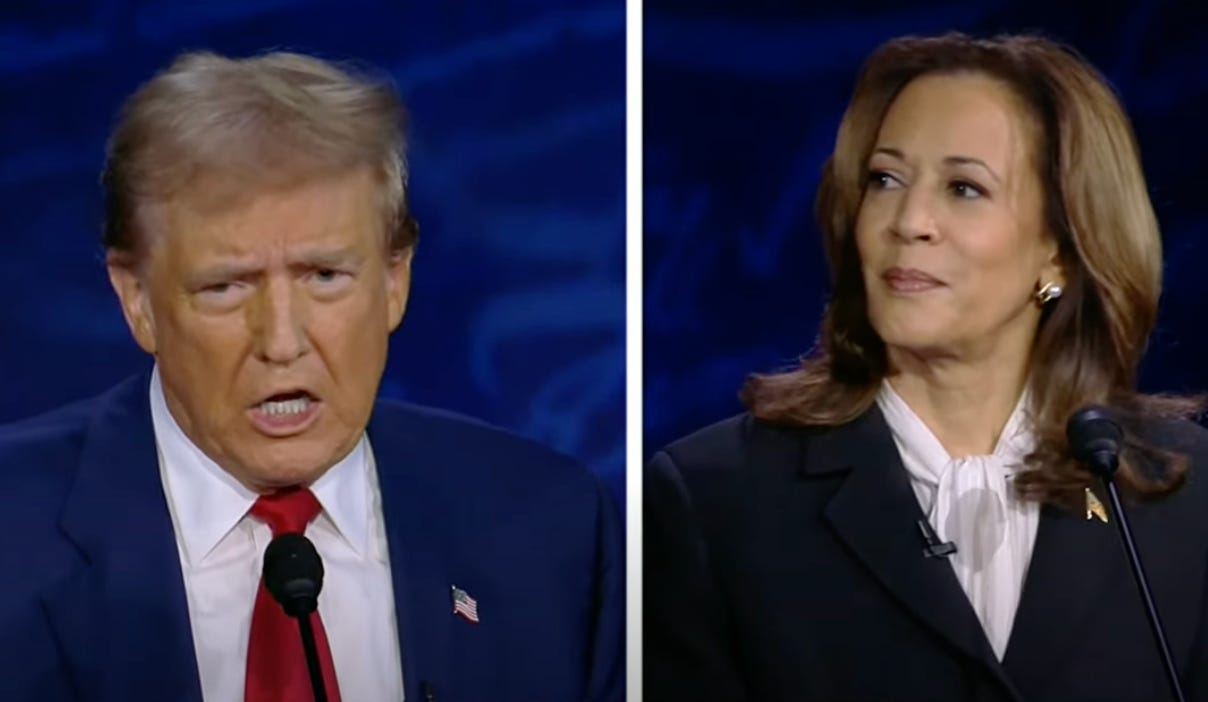🇺🇸 Three vs One—But Donald Trump Was His Own Worst Enemy
Trump failed in his most important task: maintaining discipline to convince undecided voters still wavering between the two presidential alternatives.
Harris and Trump each faced their own set of challenges ahead of the presidential debate in Philadelphia. Harris had to show voters who she is and what she stands for. Trump needed to present himself as electable for a broader voter base, displaying a more disciplined side of himself.
Harris was better at her task than Trump with his.





